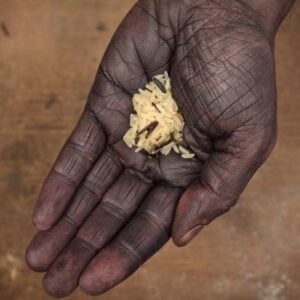King County Executive Shannon Braddock announced today that a total of $755,000 in grant funding has been allocated to support local hunger relief organizations, farm businesses, and food distributors following the abrupt withdrawal of federal funds for a planned South Seattle Community Food Hub earlier this year. The grants are intended to help these organizations acquire critical infrastructure, including commercial refrigerators, freezers, ovens, and other essential equipment necessary to safely store, process, prepare, and distribute fresh food to residents in need.
In total, 22 organizations have been selected as grant recipients, each receiving support to enhance their capacity to provide nutritious and culturally relevant food to communities across King County. The demand for the funding has been high, with more than 60 organizations applying and requesting nearly $4 million in total, highlighting the pressing need for resources to maintain and expand local food systems.
“King County is stepping up to support trusted organizations that help our neighbors who are experiencing hunger,” said Executive Shannon Braddock. “These small grants support the infrastructure that helps get nutritious food from farmland to table for those most in need.”
David Bobanick, Executive Director of Harvest Against Hunger, emphasized the importance of the initiative: “The King County Local Food Infrastructure Grant is essential to building a thriving local food system. By funding critical infrastructure such as refrigeration, freezers, and processing equipment, the program enables community organizations to safely store and distribute culturally relevant, nutritious food to those who need it most — while also strengthening markets for local farmers and food producers.”
Several notable projects will benefit from the King County Local Food System Infrastructure Grant, administered by the Department of Natural Resources and Parks. Farmstand Local Foods will expand its refrigeration and freezer capacity, enabling the organization to purchase and distribute more locally grown products year-round to chefs, wholesale clients, and home delivery customers, while also supporting local farmers and distribution partners.
El Centro de la Raza, a food bank in Seattle’s Beacon Hill neighborhood, will use its grant to repair a walk-in cooler, increasing its ability to provide a wider variety and greater quantity of fresh produce and dairy products to community members. The Boys and Girls Club of King County will use grant funding to purchase refrigerators, freezers, and storage containers, improving the safe handling and distribution of fresh foods to over 325 youth and families through partnerships with local food providers such as the White Center Food Bank and Aash Farms.
Sound Generations, which operates the Community Dining program for older adults at 27 locations across the county, will use its funding to acquire commercial freezers for senior activity centers in Auburn and Enumclaw, ensuring that nutritious hot lunches remain accessible to older residents. South Park-based Tojo Commissary will invest in two new hoodless electric ovens and necessary electrical upgrades, expanding the kitchen’s capacity to serve small food businesses and nonprofit partners that currently face limited access to shared commercial kitchen spaces.
Finally, Rehoboth Christian Development Center in Federal Way will use its grant to purchase and install a commercial walk-in cold storage unit, upgrade food-handling areas, improve food collection and distribution logistics, and acquire culturally familiar fresh foods for immigrant, refugee, and underserved families.
These grants are part of King County’s broader Local Food Initiative, a comprehensive policy and funding strategy designed to strengthen the county’s local food economy. By enhancing infrastructure for food storage, processing, and distribution, the program ensures that more residents have access to healthy, locally grown, and culturally relevant food, while simultaneously supporting local farmers, food producers, and nonprofit organizations working to reduce hunger and build resilient community food systems.







